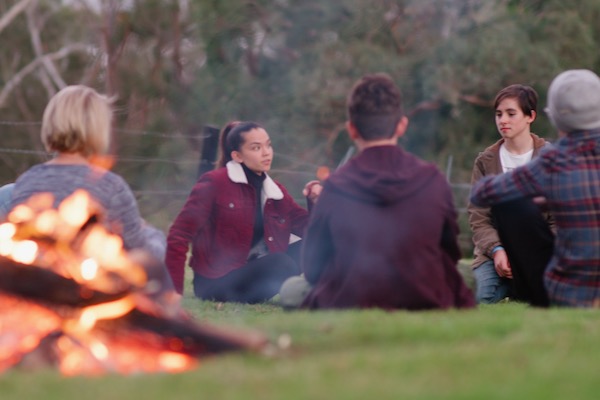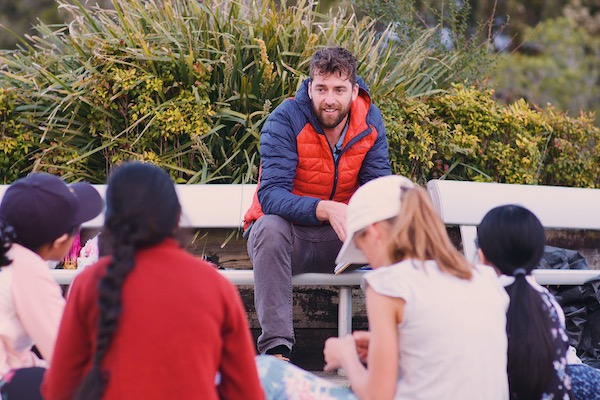Educators develop wellbeing program as a response to mental health crisis
Teachers and educators are often on the frontline dealing with student mental health. They can be the first to recognise an issue or deal with the symptoms of it. But mental health does not come in a one-size-fits-all package and it’s common for students to complete their education without accessing the needed support, asking for help, or learning the skills required to rise above it.
Mission Australia’s most recent annual youth survey1 of more than 25,000 15- to 19-year-olds found, for example, that:
- Almost half of respondents felt there were barriers that would make an impact on them achieving their study or work goals after finishing school.
- Two of the top three barriers were mental health and academic ability.
- The top three personal concerns were coping with stress, school or study problems, and mental health.
While it may be easy to dismiss mental health as an issue others are addressing—statistics like those above are easy to access, and talk about who or what is at fault is common—we all need to be contributing to change as concern grows. Our schools in particular play a vital role.
Concern for mental health and wellbeing is increasing this year with the World Economic Forum reporting that the United Nations “has warned coronavirus could cause a global mental health crisis.” Among those “vulnerable to mental distress:” children and young people.2
“We’ve got the most educated group of young people ever with the highest rates of depression and anxiety ever seen,” says Josh Brown, founder of the Invictus Wellbeing Institute and Assistant Principal of Wellbeing at Macquarie College (Wallsend, NSW). “We know the system is failing our kids for a complicated cluster of reasons—it’s not solely family breakdown, time online or geopolitical tensions, it’s a broader cultural milieu. . . . Our world is one that focusses on consumption and economic expansion, not wellbeing.” Addressing this is important because Brown, an alumnus of Avondale University College, believes a strong correlation exists between wellbeing and academic performance. “The quality of your relationships determines the quality of your life,” he says. Two keys: internal awareness and self-understanding.

Combining data from research with his firsthand view of the mental struggle of students in the classroom, Brown had his motivation to bring change. In 2013, he cared for the Duke of Edinburgh program at Macquarie but felt it didn’t make enough of an impact on student’s wellbeing and mental health. So, he contacted Avondale academic and mentor Dr Peter Beamish, who encouraged him to develop his own curriculum-based program to address the shortcomings.
Over the past decade, the Australian Government has encouraged schools to care for student wellbeing. It recognised in the 2008 Melbourne Declaration that “schools play a vital role in promoting the intellectual, physical, social, emotional, moral, spiritual and aesthetic development and wellbeing of young Australians.” While the government supports wellbeing programs, developing a credible and affordable program that would meet government requirements and student needs, earn the support of parents and fit into the school timetable wasn’t easy.
Brown asked the questions: “What if we explicitly taught students about wellbeing; about how to recognise their own emotions and how to cope with them, how to find purpose, how to find and maintain resilient relationships? What if we could teach them that they are strong and curious and compassionate and powerful?”3
He developed with Beamish a wellbeing intervention program for Year 9 students that featured a full curriculum including lesson plans, online resources and event descriptions. Based primarily on the research of Dr Martin Seligman’s positive psychology but also on the latest wellbeing and mental health research, the program is built around four elements—Network, Master, Journey and Serve—and combines outdoor education, skill mastery (bonsai anyone?) and service learning to develop in students “the type of outlook that enables them to live lives defined by self-confidence, curiosity, empathy and compassion.” During each element, students take part in a memory event that epitomises the lessons learnt.
Invictus launched at Macquarie in 2014. At the end of the year, Brown presented the program to his local deputy principals collegiate. Three of them were keen to introduce it in their schools.
While Year 9 is considered a pivotal year, Brown and Beamish, the Invictus Wellbeing Program Research Director, worked to extend the program to two years. They took the idea to schools that had already introduced Invictus and were surprised when the schools implored for a four-year program. So, work on an extension for Years 7-10 began and Invictus X launched in 2018, the same year Brown secured financial backing from health food company Sanitarium. Over the four years of the program, students have the opportunity, like the Duke of Edinburgh, to work towards Invictus Awards—bronze, silver and gold.

Now Invictus Wellbeing Institute hosts a conference, accredited by the New South Wales Education Standards Authority. With coronavirus (COVID-19) restrictions on gatherings cancelling the conference this year, Brown has instead launched a podcast called The Invictus Cast that will continue providing specialised information for educators who have an interest in wellbeing. And he continues to collaborate, with Invictus drawing on research and practical applications from Associate Professor Darren Morton, Director of the Lifestyle and Health Research Centre at Avondale and creator of The Lift Project. The program is also endorsed by Beyond Blue and recognised by Deakin University and Lake Macquarie City Council.
Brown and Beamish are excited by the interest from other schools—90 per cent of clients have come by word of mouth, with little marketing involved. The number of students involved is doubling year on year with nearly 10,000 in almost 30 schools, including those in Europe and in New Zealand, having been through the program. Peter Barnes, the Invictus Coordinator and Personal Development, Health and Physical Education Teacher at Medowie Christian School, likes the way the program develops in students “the idea that life doesn’t have to just happen to them, they can be active participants in their response to the adventures and challenges that life presents.”
Invictus must keep evolving to remain relevant, authentic, purposeful and user-friendly, says Brown. Continuing the partnership with Avondale will help, with education students enrolled in the Promoting Health & Wellbeing in Schools unit writing lessons for the program. The Invictus Wellbeing Institute is also collecting data each year—about satisfaction with life, connectedness to school, diet and spirituality—to measure mental health.
How can alumni help pave a better path for our young adults? Everyone plays a part in building each other up, says Brown. See quality time with young adults as a personal investment in their happiness and health.
References
- www.missionaustralia.com.au/what-we-do/research-impact-policy-advocacy/youth-survey
- www.weforum.org/agenda/2020/05/united-nations-global-mental-health-crisis-covid19-pandemic/
- www.theinvictuswellbeingprogram.com/our-story
Invictus Wellbeing Institute
The Invictus Wellbeing Institute is re-imagining education in the 21st century.
LEARN MOREShare

